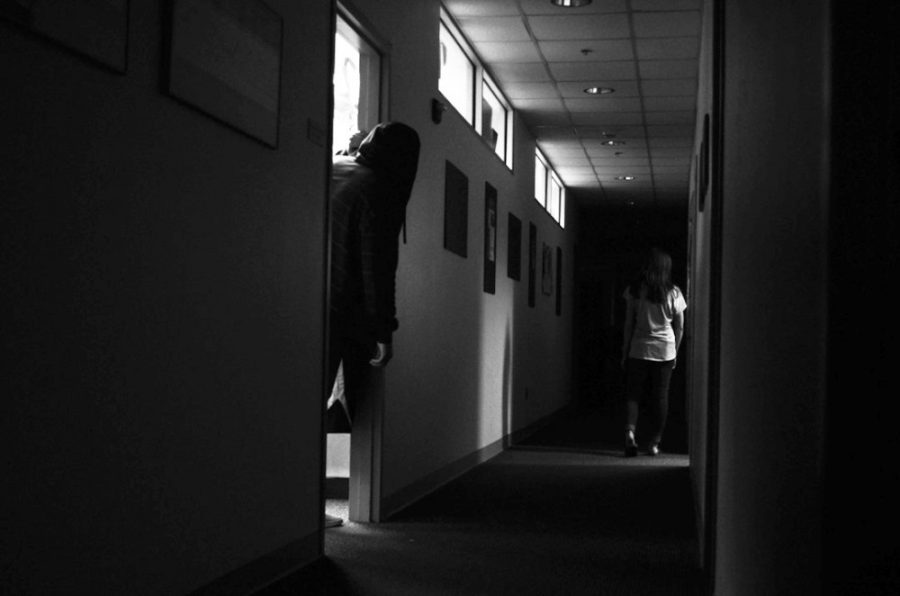According to UAPD’s 2014 Annual Campus Safety, Security and Fire Safety Report, there were two reported cases of stalking that occurred on the main campus in 2013.
Another study conducted at Sam Houston State University in Texas states college students are about twice as likely to be stalked in comparison to the general public.
The study states that 4.3 percent of college students say they have been stalked in the last 12 months, as opposed to only 2.2 percent of the general population that say they have experienced stalking in the same period of time.
Stalking is most common between former or current intimate partners, most frequently between the ages of 18 and 24, Sam Houston State University states.
Because of the increased number of stalking instances among college students compared to those happening to the general public, public college campuses face new mandates to assist victims and promote education on stalking, such as the Campus Sexual Violence Elimination Act, or the SaVE Act.
The SaVE Act requires that instances of domestic violence, dating violence, sexual assault and stalking be disclosed in an annual campus crime statistics report, and it encourages education and prevention on college campuses.
The Oasis Program, a part of Campus Health Service, works with the UA to reduce sexual assault, relationship violence and stalking on campus. It offers presentations that seek to educate and collaborate with the university community as well as provide services to survivors of such assaults.
“Stalking intersects with the other issues we deal with: sexual assault and relationship violence,” said Megan McKendry, a violence prevention specialist for Oasis. “It often happens in tandem with those crimes, so someone who is experiencing relationship violence may also be experiencing stalking.”
McKendry explained that stalking can happen before or after a sexual assault or to someone who was in an abusive relationship who has experienced stalking from their partner or ex-partner. McKendry added that Oasis is here to help anyone experiencing these types of crime.
Some of the services Oasis offers include two free individual counseling sessions and free group therapy, such as Female Survivors and LGBTQ.
“We are here for anyone who is experiencing stalking, whether it’s part of an isolated incident or it’s a part of a broader pattern of victimization,” McKendry said. “We want them to know that it’s not OK, and we support and believe in survivors.”
According to the University Herald, although college students are likely to experience stalking more frequently than the general public, only about a quarter of college victims file reports with police, whereas 32 percent of the general population file reports with the police.
Recently, technology has become a new and easily accessible way for stalkers to monitor their victims, and the University Herald says that one out of every four stalking cases uses some electronic device, whether it is a GPS to monitor their victims’ movements, audio or video recording, or social networks.
_______________
Follow Holly Halstead on Twitter.









